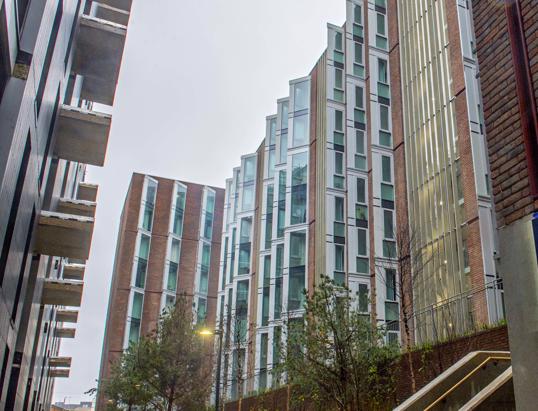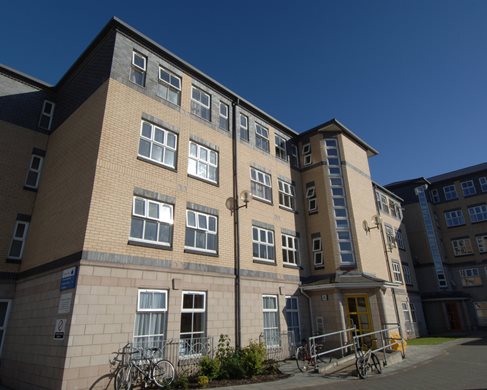Hundreds of rough sleepers are to be moved out of hotels and guest houses and into university halls of residence in the centre of Brighton.
Most are expected to stay at the Phoenix Brewery halls where Brighton University has 298 rooms.
A report to senior councillors said that the bill for housing up to 400 people who were homeless during the coronavirus lockdown would be £2.4 million by the end of next month.
And by early September the cost was expected to rise to £3.9 million, with the university halls expected to be cheaper than the average £32 a night being paid at the moment.
Students typically pay £157 a week for a single room – or just over £6,000 a year – at the Phoenix Brewery halls.
At the Phoenix Brewery students pay £157 a week or just over £6,000 a year.
Brighton and Hove City Council expects to move up to 222 rough sleepers and other homeless people into university rooms as hotels and guest houses prepare to reopen to commercial guests.
The council’s plans were approved by a sub-committee of three senior councillors today (Thursday 14 May).
A “virtual” meeting of the council’s Policy and Resources Urgency Sub-Committee was told that if everyone remained in hotels and guest houses, rather than moving to halls, the bill would be almost £4.2 million by early September.
Work was starting on plans for more permanent housing for those in university halls so that the rooms could be vacated for students from the start of the next academic year.
The council is keen to use the current situation as a chance to work closely with as many as possible of those who were homeless to help them into more permanent housing.
Labour council leader Nancy Platts praised the Arch Healthcare doctors’ surgery, in Morley Street, Brighton, and St Mungo’s, the charity has a contract to help the homeless in Brighton and Hove.

Conservative group leader Steve Bell said: “We have a lot of people on our housing waiting list and a lot of people in temporary and emergency accommodation. We must not let down these people in our city on the waiting list.”
He asked for assurances that these people, along with sofa surfers and adults who could not afford to leave home, would not be forgotten.
And the Green opposition leader Phélim Mac Cafferty said that it was key to make sure that most rough sleepers were housed and kept off the streets by September.
Pinaki Ghoshal, who leaves his job as one of the council’s most senior officials next week, said that some of those moving into halls were homeless but may never have slept rough.
He said that finding long-term housing solutions and reducing the waiting list was a long-term goal.

Councillor Platts said that she hoped to find a permanent solution to homelessness, adding: “We all want a national solution to a national problem to come out of this crisis.
“This needs to be addressed by the government. No local authority leader wants to be putting people back on the streets when this crisis is over.”
A report to the sub-committee said: “The government has written to say the council can claim up to £66,000 towards the costs of housing rough sleepers. This is clearly insufficient.
“The government has also given the council £8.157 million for covid-19 emergency response funding and further funding estimated at £8 million is promised.
“However, this is required to fund the whole council’s response to this crisis and is currently estimated to be inadequate.”

Ministers have also said that they would give councils a further £76 million to support victims of domestic violence, children in need and rough sleepers. The council does not know how much of this money it will receive.
But officials to hear confirmation of a statement earlier this month by a cabinet minister, Robert Jenrick, that the government would cover the cost of councils’ response to the pandemic.
More details of long-term plans to house the homeless are due to go before the Housing Committee at a meeting in July.









So the numbers have risen from 180 to 400.